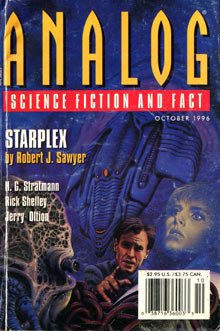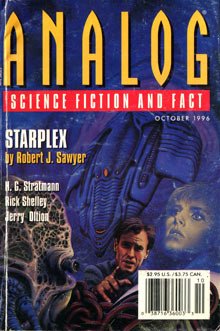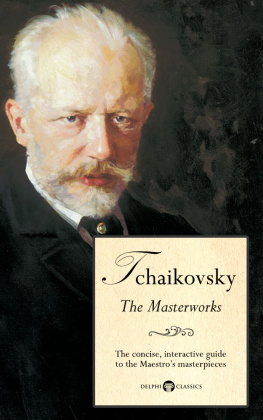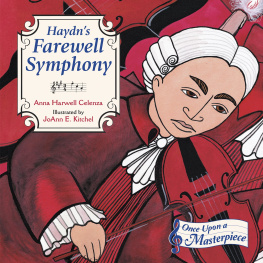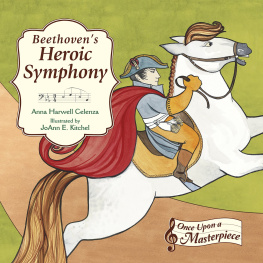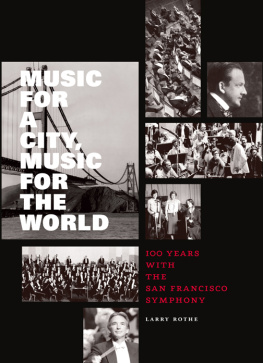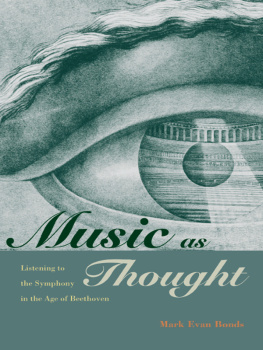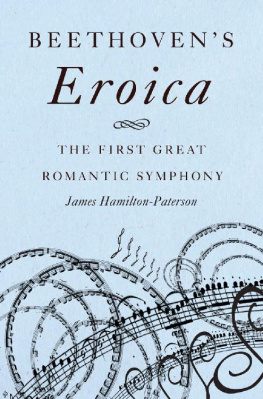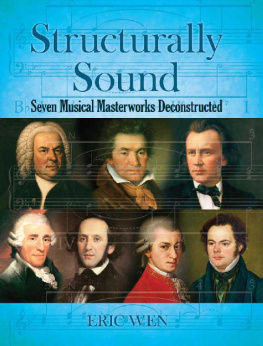H. Symphony in a Minor Key - Symphony in a Minor Key
Here you can read online H. Symphony in a Minor Key - Symphony in a Minor Key full text of the book (entire story) in english for free. Download pdf and epub, get meaning, cover and reviews about this ebook. year: 1996, publisher: Dell Magazines, genre: Science fiction. Description of the work, (preface) as well as reviews are available. Best literature library LitArk.com created for fans of good reading and offers a wide selection of genres:
Romance novel
Science fiction
Adventure
Detective
Science
History
Home and family
Prose
Art
Politics
Computer
Non-fiction
Religion
Business
Children
Humor
Choose a favorite category and find really read worthwhile books. Enjoy immersion in the world of imagination, feel the emotions of the characters or learn something new for yourself, make an fascinating discovery.
- Book:Symphony in a Minor Key
- Author:
- Publisher:Dell Magazines
- Genre:
- Year:1996
- Rating:4 / 5
- Favourites:Add to favourites
- Your mark:
- 80
- 1
- 2
- 3
- 4
- 5
Symphony in a Minor Key: summary, description and annotation
We offer to read an annotation, description, summary or preface (depends on what the author of the book "Symphony in a Minor Key" wrote himself). If you haven't found the necessary information about the book — write in the comments, we will try to find it.
Symphony in a Minor Key — read online for free the complete book (whole text) full work
Below is the text of the book, divided by pages. System saving the place of the last page read, allows you to conveniently read the book "Symphony in a Minor Key" online for free, without having to search again every time where you left off. Put a bookmark, and you can go to the page where you finished reading at any time.
Font size:
Interval:
Bookmark:
Symphony in a Minor Key
by H. G. Stratmann

Illustration by John Stevens
Introduction
As he emerged from the alley the front of the building on his right exploded. Knocked down by the blast, Robbins staggered back to his feet, unable to comprehend what he saw.
The city was deserted and in ruins. Most of the nearby buildings were at least partly destroyed. A few were on fire, spewing acrid black smoke into the cold air. The wide street he stood on was pockmarked with craters and littered with broken wood, glass, and the tom bodies of dead animals. In the distance he heard unintelligible cries and screams, sharp firecracker-like snaps, and whistling sounds like descending skyrockets followed by thunderous explosions.
Suddenly a horse-drawn wagon whipped around the nearby street comer and bore down on him. Both the driver and the gray-faced woman at his side looked terrified as he lashed the horses to greater speed. The wagon grazed Robbinss arm as he jumped aside just in time.
Before he could catch his breath, a portly red-faced man puffed around the same corner and sprinted toward him. As he ran past, Robbins grabbed the strangers arm and shouted at him in German, What is happening?
The fat mans eyes bulged. Let go of me, you fool! he screamed. Theyre right behind me, theyll kill us all!
Before he could ask who they were the man broke free and resumed his headlong flight. As Robbins started after him an arcing shriek tore through the air. Suddenly the part of the street just in front of the fleeing man exploded, flinging him backwards high into the air, arms flailing wildly, until he landed on his head with a sickening thud.
Robbins ran to him. The man lay on his back, bloodied mouth gaping wide, unmoving eyes staring up at the sky. Dead.
Then he heard more hoofbeats coming from the other end of the cobblestoned street. Recalling the dead mans last words, he looked around for a place to hide. The closest shelter was the crater just blasted in front of him in the middle of the street. It made a shallow foxhole, deep enough to let him duck his head below street level by lying on his stomach. Ignoring the mud staining his clothes, he peeked over the edge of the crater.
Four horsemen turned the same street comer from which the wagon and the dead man had just come. They wore identical tall black woolen hats, brown shirts open at the neck, wide red sashes around their waists, and dark pants stuffed into high military boots. A long saber hung from each ones side. Their bearded faces too seemed identical, with coarse, menacing features.
Seemingly oblivious to his hiding place or the distant thunder of cannons, they trotted their horses down the street at a leisurely pace, directly toward him. Every few meters they would stop momentarily and peer at the surrounding buildings, as if looking for someone.
Quickly Robbins ducked his head back down, heart pounding. The alley from which hed emergedthe one containing the portal back homewas too far away. If he tried running to it, they would see him, and could cut him down with their sabers long before he reached safety.
And if he did nothing, in a few minutes they would, literally, be right on top of him.
The melody of the Russian dance from Tchaikovskys Nutcracker ballet flashed through his mind. He was about to be killed byCossacks?
Confused, desperate, Robbins closed his eyes. Like the bass part of some diabolical passacaglia, a single thought repeated itself in his mind.
What in Gods name is going on?
Exposition
And we have no right to play God!
H. L. Robbins, head of the musicology section, looked anxiously at the other members of the humanities committee seated around the conference table. Then he sighed with relief. Except for Billingsley, who was grinning at her, the other Section Chiefs seemed unmoved by Brentanos tirade.
At the head of the table, the chancellor of the Institute for Transcosmic Studies frowned at Brentano. Thank you for your comments, Dr. Brentano. However, before we discuss whether Dr. Robbinss proposal should be carried out, we need to establish whether it is even feasible. Thats why Ive asked our distinguished guests from the science committee, Drs. Everett and Harrison, to come to this meeting.
She nodded toward the elderly woman seated at her right.
Catherine Everett, Ph.D. glared back. I gave my opinion in the report I sent to your committee. Her eyes flashed around the table. I assume you all read it?
From the embarrassed looks on the faces of his colleagues, Robbins doubted any of them had been able to figure out what Everetts report said either. He, for one, had no idea what terms like dosed temporal loop and quantized timelines meant. And as for the equations.
The Chancellor said diplomatically, Perhaps you could summarize your conclusions about the possible dangers of traveling back in time and changing the past.
No, no, no! Everett shouted back. Theres no danger anything we do on Transcosmic Earth can affect us! Translocating there may seem like simple time travel into the past, with all the possible paradoxes and violations of causality that implies, but its actually much more complicated! Anything we change there would simply replace TCEs current history with one of a nearly infinite number of different shadow histories, and make it the real one instead. But our history would stay the same! She launched into a monologue about temporo-quantum discontinuities and branching universes that Robbins couldnt begin to follow.
But even if he didnt understand it, Everett must know what she was talking about. She had originated the theory of transcosmology that let them travel to Transcosmic Earth. Apparently, Everett and the other physicists at the Institute disagreed about what TCE wastheir own Earths past, a parallel world, or something else. Whatever it was, you could translocate to anywhere on it within a roughly 400 year temporal window, stay as long as you liked, then return to their Earth an equal amount of time later.
Nobody he talked to seemed to know why you couldnt travel back farther than the mid-seventeenth century, or more recent than 1998. Rumor was the last six decades were off-limits because the members of the Executive Committee who oversaw the Institute didnt want anyone alive today to be embarrassed by anything discovered by observing their younger analogs on TCEespecially themselves. Unlike his colleagues, Robbins didnt feel those limits hurt his work. In fact, it was because of his expertise in pre-twenty-first century Western music, whose golden age fell within those years, that hed been invited to join the Institute for Transcosmic Studies.
The institute was the result of an international effort to use and regulate translocation. Its purpose was to go back in time on TCE and collect information and cultural artifacts, like music, that had been lost on their own Earth. Along with a monopoly on its use, the institute was responsible for ensuring translocation wasnt misused. There was one rule, the First Law of Contact, that every member of the Institute had to obey at all cost. Anyone going to TCE was to have as little contact with the people there as possible, or do anything that might change its past.
It was this rule that Robbins was proposing to break in a very big way.
And that should answer your question! Everett folded her arms.
The Chancellor looked as confused as the rest of them. Then I take it you believe we can alter TCEs past without changing our own?
Font size:
Interval:
Bookmark:
Similar books «Symphony in a Minor Key»
Look at similar books to Symphony in a Minor Key. We have selected literature similar in name and meaning in the hope of providing readers with more options to find new, interesting, not yet read works.
Discussion, reviews of the book Symphony in a Minor Key and just readers' own opinions. Leave your comments, write what you think about the work, its meaning or the main characters. Specify what exactly you liked and what you didn't like, and why you think so.

